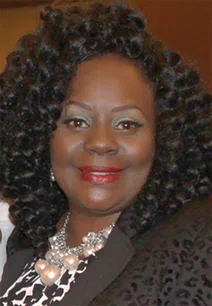The power of human capital can propel equity work
Equity Corner by Patricia Brent-Sanco
December 7, 2020

In the face of challenging times, equity demands that we continue to press forward. Equity is our moral compass that guides us to ensuring that all students succeed. When implemented to its fullest capacity, equity ensures that students are given the supports, resources and opportunities that they are entitled to.
Although equity demands that each of us hold fast to our moral obligation to manage biases, call out inequities, and disrupt inequitable systems and policies, it is not a solely individual phenomenon. It requires the power of human capital using distributed leadership and meaningful partnerships. In the book “The Multiplier Effect,” Wiseman, Allen, and Foster state that “We must create an intense environment that demands people’s best thinking, drive sound decisions by constructing debate and decision-making forums, and give your team a sense of ownership for responsibilities and results.”
The concept of distributed leadership is not a new one. Since the early 2000s, many have applied this theoretical framework to advancing the work of professional learning communities within schools. Distributed leadership is not delegation of tasks. It requires the mobilization of leadership expertise at all levels. When analyzing the enormous task of mitigating learning loss, re-opening schools, and re-acclimating students and parents to in-person learning, it will take more than the one fearless leader on campus. It requires a leader who can harness the power of human capital. This requires an approach that seeks out and prepares equity leaders who reject the traditional Eurocentric worldview of school and the deficit approach to supporting students of color.
As equity leaders we must work to ensure that we are not the only driving force for equity work. The traditional model of the sole transformational leader who swoops in and becomes a savior for hundreds of students will not work this time. The task is too big and the stakes are too great. This will require us to mobilize an equity army focused on the greatest challenges for your district and campuses. What will be your greatest challenges? Have you built capacity of various stakeholders to accept and meet the challenge of tackling these issues? Have you identified the leadership expertise of your individual staff members? Are they using their leadership strengths in productive ways to propel your equity work forward?
We sometimes get stuck on titles rather than talent. In order to harness the power of human capital, we must identify uncommon equity warriors and put them to work. One example is the way my district uses employees who would have been out of work to create a network that locates and follows up on students. This network uses noon duty aides, substitutes, locker room attendants, community liaisons and office staff.
Many of us have provided professional development to our staff members on various concepts of equity. We sometimes feel we are on PD overload. In order for us to make the most of our training and avoid the PD tryptophan syndrome, we must create tangible action steps as a team and then let the talent on our campuses put what they have learned to work. Who is leading your equity work at each grade level? Which classified staff members are involved? Have you identified parent equity warriors to support community outreach? According to Dr. Alma Hall, in a distributed leadership model using human capital “the emphasis is upon interdependent interaction and practice rather than individual and independent actions associated with those with formal leadership roles or responsibilities.”
The feeling of being saturated has now become the new normal. I get it. But I also know that we cannot return to school as normal. We know that “normal” wasn’t working out too well anyway. According to Midles and Niccolls, “One integral strategy for effective change leadership is being intentional in creating time and space for distributive work that is time-sensitive, assigning people to think and do with an eye towards the future as well as utilizing the best people and resources to persist in the present.”
We have important equity work to do — work that will require all of us to use our talents and leadership skills. Work that demands we challenge grading systems, eliminate culturally exclusive curriculums, continue to close the digital divide, create and sustain interventions to mitigate learning loss, and confront our own biases and the biases of others.
More than ever, I have come to embrace the fact that education is a civil right. Just like all other rights, it becomes mere words on a paper unless it is advocated for, championed for, and fought for. Our students, particularly students of color, need us to advocate, champion and fight for an equitable education for them, an education that is liberated, culturally responsive and culturally reflective. In order to accomplish this, we must broaden our concept of leadership and empower the human capital on our teams.
Patricia Brent-Sanco, Ed.D., is the founder and CEO of The Lighthouse Educational Consulting Group (thelighthouseconsulting.com) and the Director of Equity, Access, and Instructional Services for the Lynwood Unified School District. She serves a VP Elect of Membership Services for ACSA Region 14 and on the state ACSA Equity Committee.


